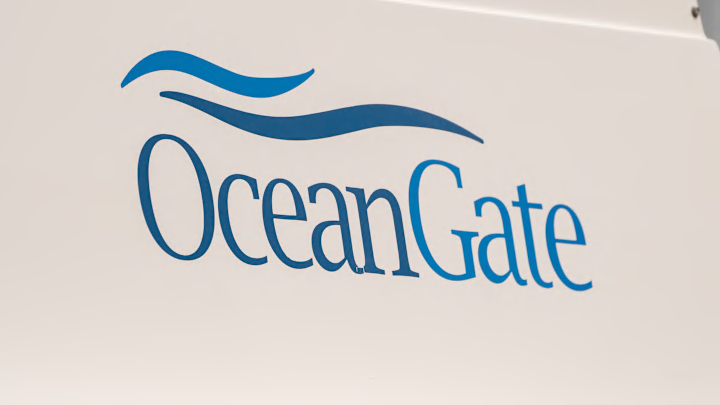We all remember where we were when news reached us regarding the submarine Titan's disappearance. Exactly two years ago, on June 18th, 2023, the submarine belonging to the company OceanGate, which was headed towards the infamous Titanic's wreckage, stopped making contact with the surface. Once it was clear that it wouldn't return, the international search began.
In a relentless search against the clock, hundreds of people desperately searched for the submarine, hoping for a miracle to find the five people on board: Stockton Rush, the American chief executive officer of OceanGate and leader of the whole endeavour; Paul-Henri Nargeolet, the French worldwide renowned explorer, diver, and Titanic expert; Hamish Harding, a British businessman; Shahzada Dawood, a British-Pakistani businessman, and his barely-of-age son, Suleman Dawood.
News across the globe televised the underwater search with a countdown clock of how long the people aboard the Titan had left, especially as oxygen reserves dwindled by the second. On June 22nd, the debris and remains of the submarine were finally located, and the world mourned the loss of the five men. However, as the hours after the tragedy unfolded and people wondered and questioned how these events transpired, it was soon discovered that not only had the Titan imploded on its descent, but its leader had also known the risks all along and had still gone ahead with the ludicrous idea.
Two years later, Netflix released an impactful documentary, Titan: The OceanGate Disaster, about the creation of the Titan and, most importantly, about Stockton Rush, its inventor and the eventual man responsible for these circumstances. As the documentary reveals, Stockton was a man with a vision: to become a globally respected entrepreneur and the ocean explorer who invented underwater tourism, as well as one who achieved fame, power, and wealth comparable to that of men like Jeff Bezos and Elon Musk.
The documentary delves deeply into Stockton's past. It highlights how he came from generational wealth, his connection to the Titanic, and even his wife's descent from two Titanic victims, Isidor and Ida Strauss, as well as how he utilised his intelligence and ambition to create his own company, Ocean Gate, which was primarily designed to pioneer underwater ocean tourism.
However, Stockton was also regarded as an ego-driven man who didn't stop to think about the consequences of his actions and how they might affect others, especially in the pursuit of his goals and dreams. The documentary also details the multiple people who worked on OceanGate at different levels and areas who early identified issues regarding the materials used to build the Titan, how the submarine needed to carry out multiple successful missions before including humans, how dangerous it was to dive as deep as where the Titanic has laid on the ocean bed since its sinking back in 1912, and how at the end of the day, Stockton still went ahead.
Former Stockton employees participated in the documentary to retell their experiences and how they were encouraged to stay silent despite having reservations about whether they wanted to remain at OceanGate. Alongside eerie and foreboding music, people who knew Stockton described him as selfish, egomaniacal, and someone who thrived in creating a silent culture within the company so nothing and no one stopped him from accomplishing his endgame. As Tony Nissen, former Director of Engineering of OceanGate, said, the Titan's designer was "borderline clinical psychopath and definitely narcissistic."
Without a doubt, the most powerful testimony throughout the testimony comes from Nargeolet's daughter. Sidonie Nargeolet praised her dad for all he did for the scientific community and for how remarkable his knowledge of the Titanic was, which is why Paul-Henri was known as Mr. Titanic. Without spoilers, Sidonie reveals the process between getting notified her father had disappeared, the details surrounding OceanGate and Stockton's actions, and whether she's been contacted by the company since the implosion.

For anyone who wants to further their knowledge about the subject, this documentary is only the beginning of the enormity of sordid details behind a company that knew better, a team who were silenced, and the man behind it all who will always now be linked to one of history's most unnecessary, yet, educational submarine catastrophes.
As the last line of the documentary comes across the page, the encompassing message of the documentary is clear: "Stockton Rush wanted fame to pursue his ego, and now, he will forever more live in infamy because of it."
Titan: The OceanGate Disaster is currently streaming on Netflix.
